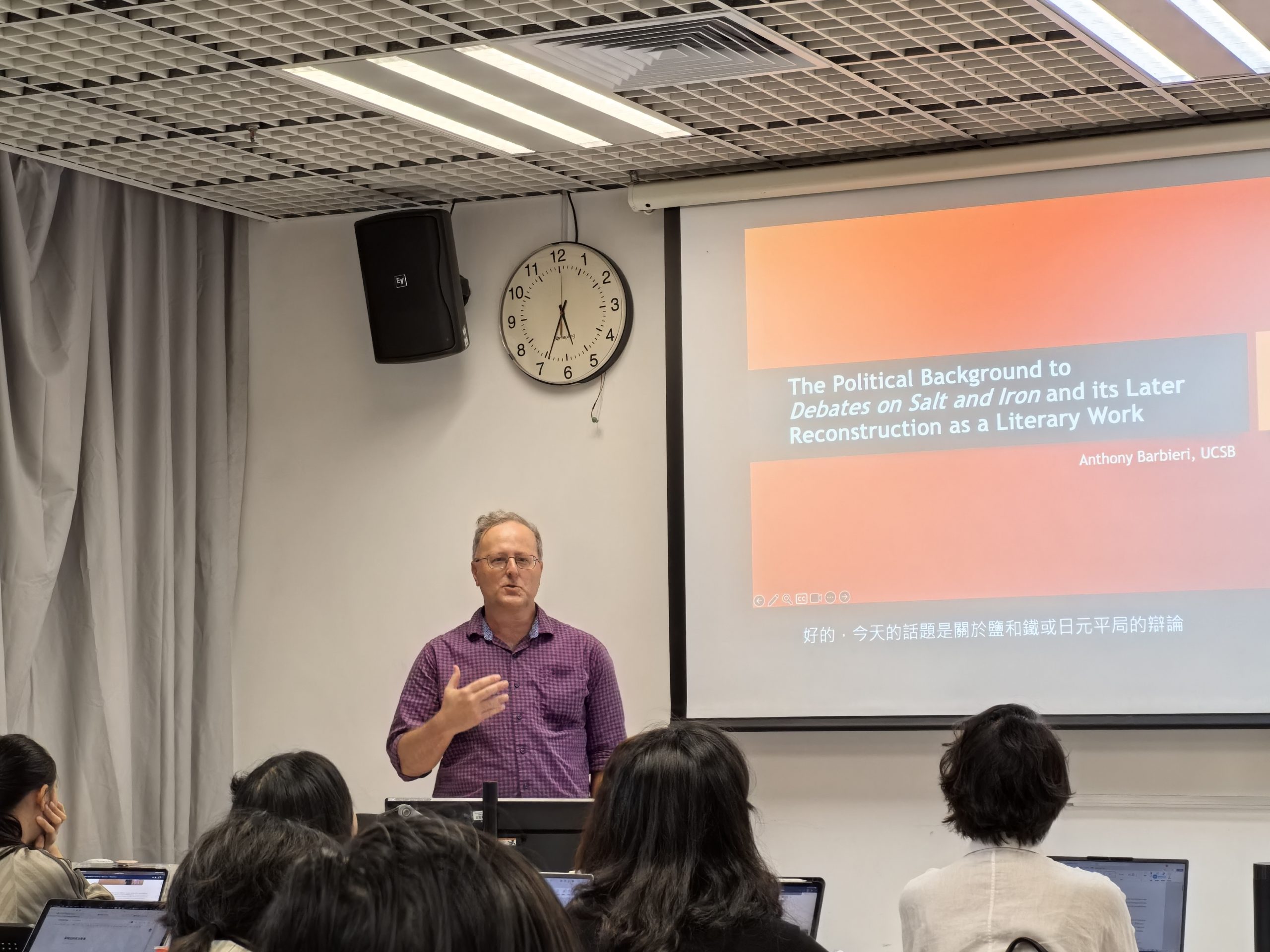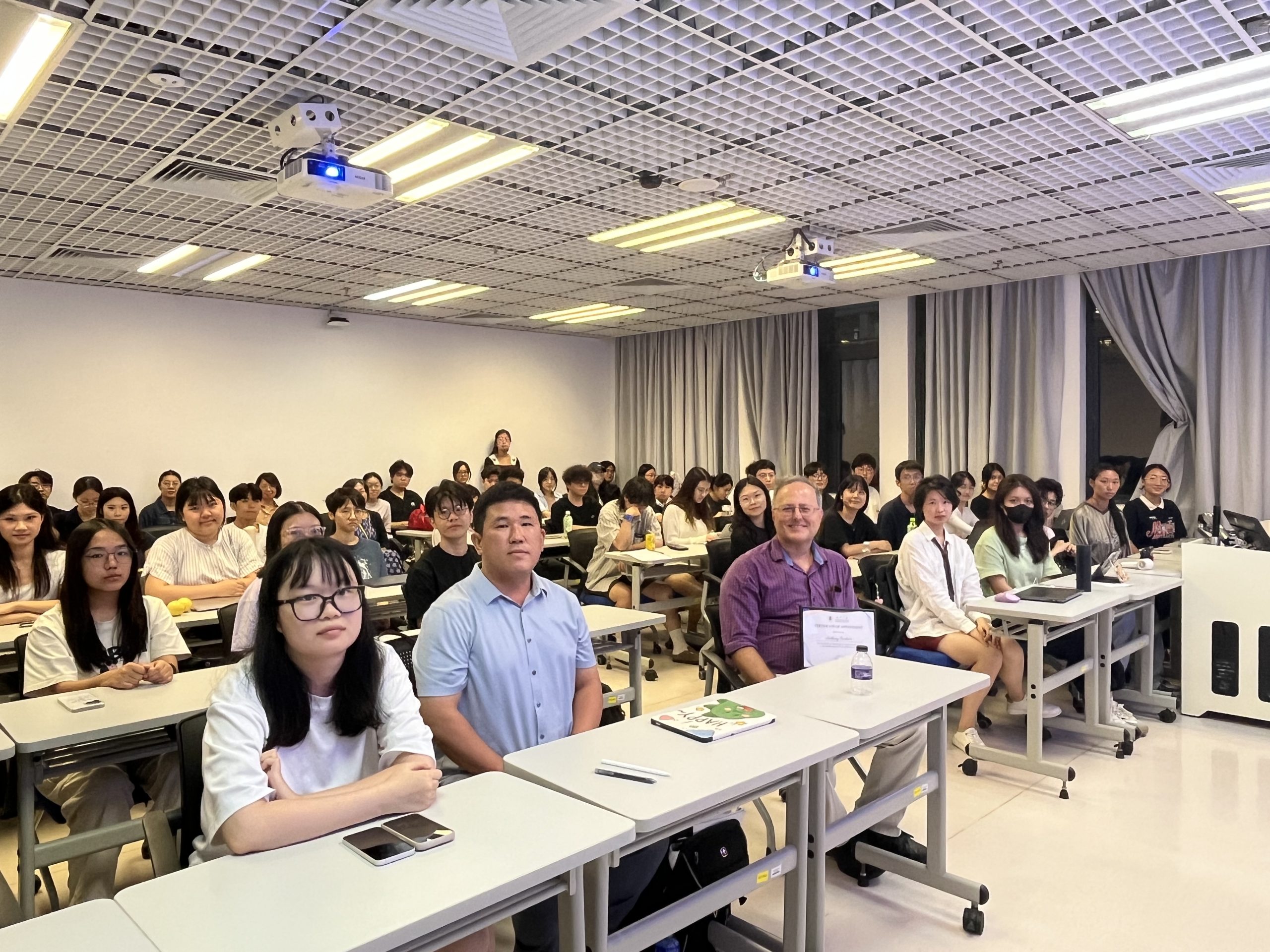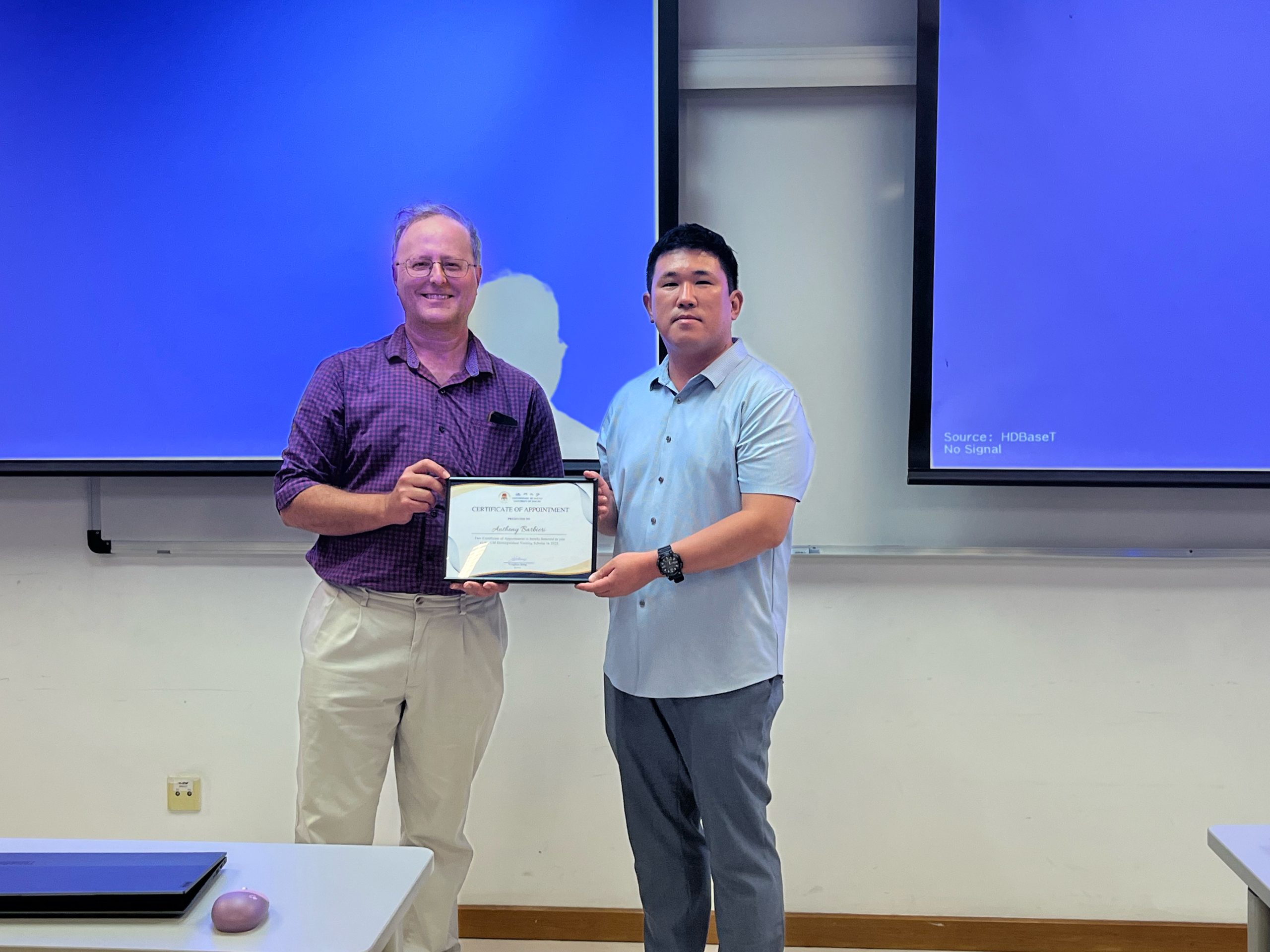University of California Professor Anthony Barbieri explores Han Dynasty literature and political economy at UM
美國加州大學李安敦教授澳大講座重構《鹽鐵論》
2025年9月15日,澳門大學人文學院中國語言文學系開展題為“《鹽鐵論》的政治背景及其文學重構”的學術講座,講座嘉賓是美國加州大學聖塔芭芭拉分校的Anthony Barbieri(李安敦)教授。澳門大學人文學院中文系張月教授主持,美國加州大學聖塔芭芭拉分校的李小榮教授、澳門大學英文系徐敏慧教授、中文系王思豪教授等校內外諸多師生出席,氛圍熱烈。
李安敦教授於1997年獲得哈佛大學東亞研究碩士學位,並於2001年獲得普林斯頓大學中國藝術史與考古學博士學位。他的研究領域廣泛,覆蓋早期中國的諸多方面,具體包括:技術、生產模式、勞動史、性別與社會關係、法律、視覺與物質文化及國家形成等。同時,他亦從事埃及學研究,並將其作為與早期中國比較的重要領域。李安敦教授學術成果豐碩,代表作如《秦始皇的多重形象》(華盛頓大學出版社2022 年版)、《古埃及和早期中國:國家、社會和文化》(華盛頓大學出版社2021 年版)、《秦漢時期法律、國家與社會》(博睿出版社2015 年版)、《秦漢工匠》(華盛頓大學出版社 2007 年版;中文版,上海三聯書店2023年版)以及《重塑中國的往昔:“武梁祠”的藝術、考古和建築》(耶魯大學出版社2005 年版)。

在澳大的講座,李安敦教授圍繞《鹽鐵論》展開。該典籍是對西漢昭帝始元六年(公元前81年)召開的一次朝廷會議的記錄,此次會議圍繞廢除鹽鐵官營制度這一議題展開。然而,這部相傳為桓寬所編、共六十篇的著作,卻是一部文學重構的作品,而非逐字記錄的會議實錄。桓寬編撰此書時,不僅參考了官方奏議、詰問對策與辯論筆錄,還融入了文學處理,如增補整段文字等。此外,他將參與會議的60餘人概括為複合型的文學形象,並稱之為 “文學” 與 “賢良”。該作品以高度的篩選性與整合性,對漢代政治經濟展開了深入討論。

李安敦教授在對鹽鐵會議背後的政治背景進行考察時指出,此次論辯實為內朝首席輔政大臣霍光針對作為其政敵的御史大夫桑弘羊所策劃的一場“政治謀殺”。桑弘羊不僅是外朝領袖,更是與漢武帝包含鹽鐵官營制度在內的諸多財政政策密切相關的核心人物。儘管這場論辯被認為是針對貧困、國土擴張等經濟與社會議題的深切探討,但實則是一場詆毀桑弘羊、逼迫其謀反的陰謀,而桑弘羊在次年確實發動了叛亂。

講座引發了觀眾的積極討論,李安敦教授耐心細緻地回答了在場觀眾提出的問題。在講座的最後,張月教授為李安敦教授頒發“澳門大學傑出訪問學者”證書。講座反響熱烈,並在學術交流的友好氛圍中結束。
On September 15, 2025, the Department of Chinese Language and Literature, Faculty of Arts and Humanities, University of Macau, hosted an academic lecture entitled “The Political Background to the Debates on Salt and Iron and its Later Reconstruction as a Literary Work.” The guest speaker was Professor Anthony Barbieri from the University of California at Santa Barbara. The lecture was chaired by Professor Yue Zhang of the Department of Chinese Language and Literature, and attended by numerous faculty members and students, including Professor Xiaorong Li from the University of California at Santa Barbara, Professor Minhui Xu from the Department of English at University of Macau, and Professor Sihao Wang from the Department of Chinese Language and Literature.
Prof. Anthony Barbieri was trained at Harvard (M.A., 1997) in East Asian Studies and Princeton (Ph.D. 2001) in Chinese Art and Archaeology. He has wide-ranging interests in many aspects of Early China, including technology, organization of production, labor history, gender and social relations, legal process, visual and material culture, and state formation. He also conducts research in Egyptology as a comparative field with early China. Among his many outstanding publications, here are some selected ones: The Many Lives of the First Emperor of China (University of Washington Press, 2022), Ancient Egypt and Early China: State, Society, and Culture ( University of Washington Press, 2021), Law, State, and Society in Early Imperial China (Leiden: Brill, 2015), Artisans in Early Imperial China (Seattle: University of Washington Press, 2007), and Recarving China’s Past: Art, Architecture, and Archaeology of the “Wu Family Shrines” (New Haven: Yale University Press, 2005).

The Debates on Salt and Iron (鹽鐵論) presents itself as a faithful account of an imperial court conference held in 81 BCE, centered on the question of abolishing the state monopolies on salt and iron. However, this sixty-chapter work, attributed to Huan Kuan 桓寬, is primarily a literary reconstruction, not a verbatim transcript. Huan compiled it from official memorials, examination responses, cross-examination transcripts, along with his own literary embellishments, including whole added compositions. Huan also streamlined the original sixty participants into composite literary characters, which he called the “Literary Scholars” and the “Worthies.” The text thus provides a highly curated discussion of Han political economy.

An examination of the political background to these events reveals these debates to be a calculated “political assassination” initiated by the regent leader of the Inner Court, Huo Guang 霍光, against his elder rival, Sang Hongyang 桑弘羊, the leader of the Outer Court and the man most closely associated with Emperor Wu’s activist fiscal policies, including the monopolies. Though framed as a sincere discussion of economic and social issues like poverty and imperial expansion, the debate was just an opportunity to defame Sang Hongyang and drive him to revolt, which he did the following year.

The event was conducted in a lively atmosphere and stimulated active discussion. Professor Barbieri responded to the audience’s questions with patience and rigor. At the conclusion of the lecture, Professor Yue Zhang presented Professor Barbieri with a certificate recognizing him as a “Distinguished Visiting Scholar of the University of Macau.” The lecture was met with enthusiastic reception and concluded in a cordial spirit of academic exchange.